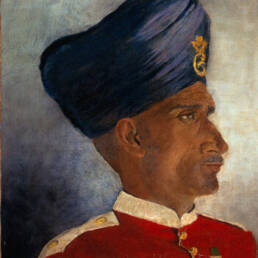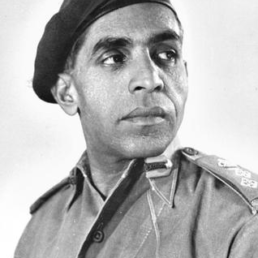Long before the term ‘Power Couple’ was coined, the princely state of Hyderabad in India flaunted one. Their power was poison for jealous hearts. So, member(s) of the British Raj conspired against them to cook up a scandal – the first of its kind in history.
In the summer of 1892, an eight-page pamphlet was circulated in the princely state of Hyderabad regarding Mehdi Hasan – the Chief Justice of the state’s high court and the Home Secretary of the state and his Indian-born British wife, Ellen Gertrude Donnelly.
What followed next, would turn their lives upside down. The anonymously written pamphlet targeted Ellen with three scandalous accusations.
First, it claimed that Ellen had been a common prostitute before her marriage, and that the author, along with other men, had used her for their exclusive sexual pleasure. Second, it claimed that Ellen and Mehdi were never married.
Third, and the final one, claimed that Mehdi had sold Ellen as a sexual commodity to Hyderabad’s administrative elites to gain favours. 19th century India encouraged neither love-affairs nor marriages across borders, races or castes.
It was almost unthinkable for an Indian man to have a relationship with a white woman. But to everyone’s surprise, Mehdi and Ellen were happily married and were part of the elite circles in Hyderabad ruled by the Nizams.
They were even invited to London to meet Queen Victoria. As Mehdi rose through administrative ranks and began to enjoy a lavish lifestyle, it raised eyebrows all over the state. All this time, the couple was aware of the secret jealousy among their fake acquaintances.
Due to the anonymity of the pamphlets, Mehdi decided to go after the owner of the printing press that printed the pamphlets, SM Mitra. He filed a lawsuit in the Residency Court where a British judge was to pass the verdict.
To make a strong case, both the prosecution and the defense hired reputed British lawyers. However, much to Mehdi and Ellen’s surprise, both the lawyers conspired against them and bribed the witnesses who perjured themselves either in pre-trial depositions, on the stand, or both.
Mitra was exonerated of all charges in the verdict; Mehdi and Ellen received neither justice nor social acceptance. In search of a fresh start, they both went back to their hometown, Lucknow.
Mehdi tried his best to regain his position in the local government, where he once served as a collector, to ensure his pension and earn enough to make ends meet.
Mehdi died prematurely at the age of 52, leaving Ellen financially barren. During her final days, Ellen wrote a letter to the Prime Minister of Hyderabad, pleading for financial help on the grounds of sympathy.
Her request was granted in the form of a small compensation but before it could make things any better, she died. During the nine months of the trial, the pamphlet scandal became an international sensation.
The couple raised serious questions regarding cultural intermingling, long before the Indian nationalists would begin to challenge the socio-political structures. While they held on to each other through thick and thin, their story got lost in history.
Sources:
An Appeal to the Ladies of Hyderabad – Scandal in the Raj by Benjamin B. Cohen
Image courtesy:
Keystone-France
Telangana/Andhra Pradesh State Archives
G P Varma Press
The Alkazi Collection of Photography




